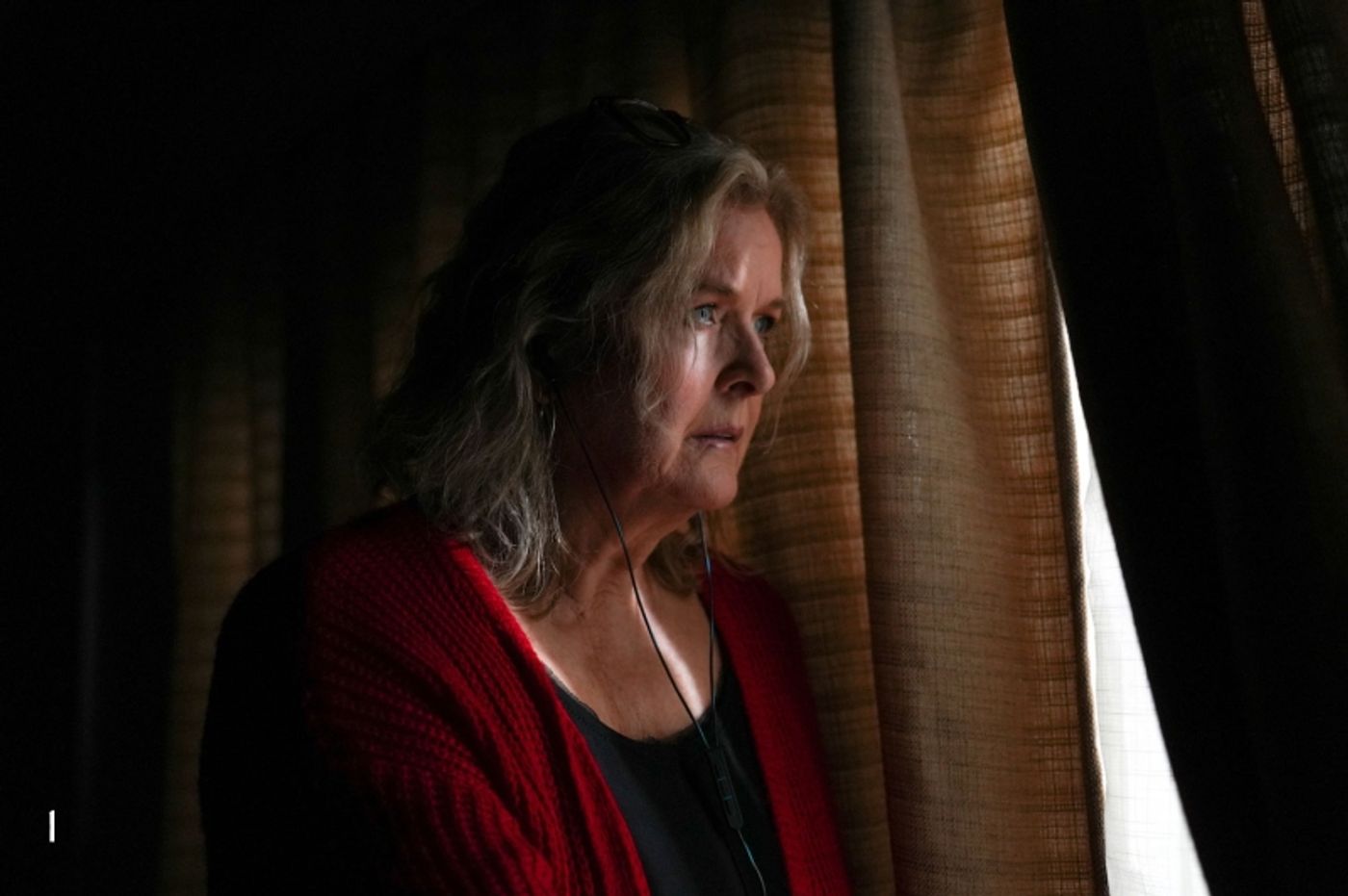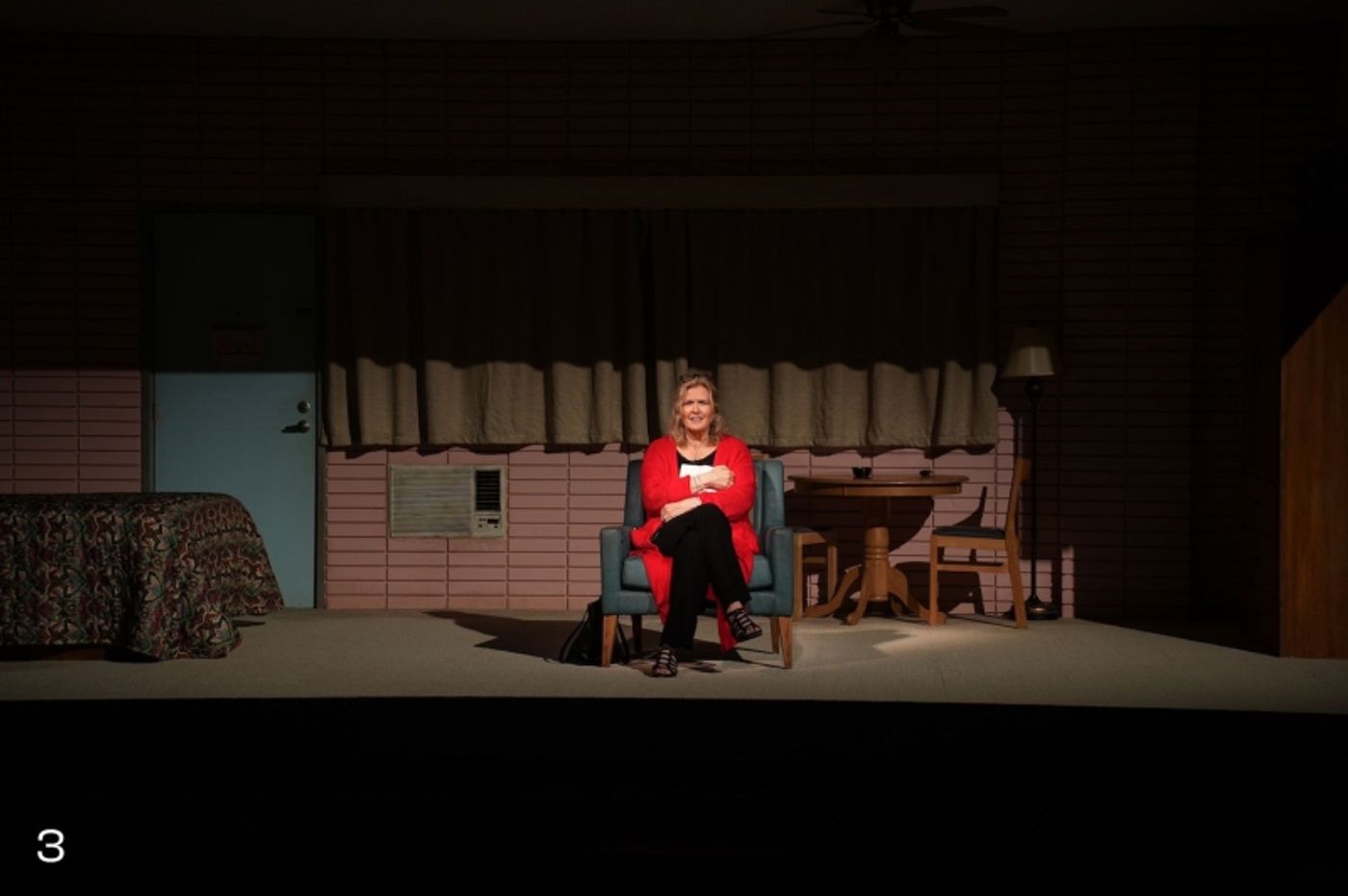Review: DANA H. at Berkeley Rep Recounts a Harrowing True Tale to Startlingly Theatrical Effect
The captivating, deeply unsettling production runs live through July 10th

As an inveterate theatergoer for over 40 years now, I thought I had pretty much lost my ability to be taken by surprise. Even when reviewing a production of the latest supposedly cutting-edge play-du-jour universally lauded for its brash new form, I can usually cite a host of obvious antecedents. Well, I now stand corrected. The beguiling production of Lucas Hnath's unsettling and unorthodox Dana H. now playing at Berkeley Rep surprises at every turn, and then some. I have never seen anything like it, not even remotely, and there is something exhilarating in that, even as I struggle to make sense of my complicated reactions to the play two days after having seen it.
On the surface, the play is odd enough from the get-go. It is adapted from actual interviews given by the playwright's mother some years after she survived a beyond-harrowing ordeal where she was abducted by a member of the Aryan Brotherhood, then held hostage for five months as she was moved from one Florida motel to another, brutalized and raped along the way. Lest this sound like "trauma porn" or some woman-in-peril movie of the week, I can assure you it most decidedly is not. The playwright introduces a critical element of emotional distance by making his mother's voice the only one we hear, as excerpts from the interviews are lip-synched by a lone actor seated center stage. This somehow makes the recounting more disturbing. As is often the case with trauma survivors, the real Dana's manner is startlingly matter-of-fact, often affectless, and sometimes inappropriately jocular. This downplaying of the sheer atrocity of the events has the paradoxical effect of making them even more deeply disturbing.
As we listen to her relate the horrific details - and believe me, they are horrific in the extreme - we begin to wonder how anyone could survive such an ordeal, and ultimately to wonder if she indeed survived at all, other than in a physical sense. There is such an eerie detachment in her retelling of the events, not to mention her description of feeling unable to be "in this world" after she was eventually rescued, that we begin to wonder in her case what survival would even mean.
And this brings us to what the play is ultimately about, which is the bridge between the living and the deceased and the incredible effort it takes to move from the former to the latter state. The recounting of Dana's kidnapping is bookended by an opening section where she relates her experiences as a "psych chaplain" who has witnessed the death of thousands of people over the decades, and a final section where she relates the experiences of people who have brushed up against death before being pulled back to the living. Without giving anything away, let me just say that her description of the latter is neither heartwarming nor particularly terrifying. It just is. Much like her recounting of the events of her own ordeal.
Director Les Waters gives the play a pitch-perfect, deceptively simple staging. When Jordan Baker, the actor playing Dana H., enters and takes her seat center stage, we see a technician insert listening devices into her ears so that she can follow along with the recording. Supertitles explain that we are about to hear interviews with the real Dana H., noting the years the events happened and the interviews were conducted. This could not be more straightforward, more "real," and seems almost anti-theatrical. And yet it is eerily compelling as Baker begins to "speak" in the voice of Dana H. This, in fact, is not reality at all. Or is it? Whatever it is, it is pure theater.

Baker is seated in what looks like a generic motel room somewhere in Florida, but the set is dimly lit only from the front and above, as though the performance, the "play," hasn't really commenced yet. It is only about ¾ of the way in, during a sequence that unnervingly shows how the darkest stains of our society can be wiped away in perfunctory fashion, that we finally get more dramatic theatrical lighting and sound effects. And then we're back to Dana alone in her chair, before she exits through the motel room door into a bright blue void.
I really can't say enough about the physical production. Andrew Boyce's set gives off a subtly unsettling vibe from the moment we enter the theater, with its pepto-bismol pink brick upstage wall interrupted by a baby-blue door and oatmeal curtains. Paul Toben's lighting cues, when they come, finally bring the room to three-dimensional life in a way that is both utilitarian and creepy. And the sound, by recent Tony Award winner Mikhail Fiksel for the Broadway production, is incredibly detailed and crucial throughout, as we are able to hear every whoosh of Dana's sleeve across the arm of her chair, every rustling of the papers in her lap, with recurring faint beeps to demarcate the splicing between excerpts.
Jordan Baker as the title character has got her hands on a bravura role, and she knows it and runs with it. And what a highwire act it is! The actor must stay completely in time with the voice on the recording for the entirety of the play, including its mainly oddly-timed pauses, and with no visual cues to offer her guidance. Just as an exercise in concentration, I cannot imagine what it takes for an actor to pull that off. Which is not to imply that Baker ever seems to be a mere automaton. Oh, no, she seems utterly in the moment as she breathes life into her character. At the very beginning of the play, Baker's lip movements seemed to be just a tad off from the recording. A minute or so in, though, they were completely in synch. And after about five minutes, I was convinced that Baker's movements were actually cuing the recording, rather than the other way around. Very trippy. But by then I was beginning to call into question every element I was seeing onstage. Was Dana's story actually true? Was there even a real Dana H? What kind of playwright could possibly bring himself to create a work about such harrowing events endured by his own mother? Just what was/is their relationship? This is the kind of play that will keep you guessing, and re-evaluating, long after seeing it.
Earlier this week, when the fabulous Deidre O'Connell accepted her Tony Award for Best Actress in a Play for her portrayal of Dana H. in the recent Broadway production, she exhorted the audience to continue supporting "weird art." If this play is what she meant by that statement, well, then I'm all in.
Photo Credit: Calvin Ngu
Reader Reviews
Videos

